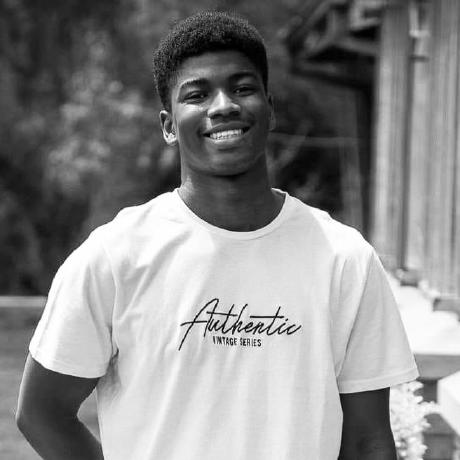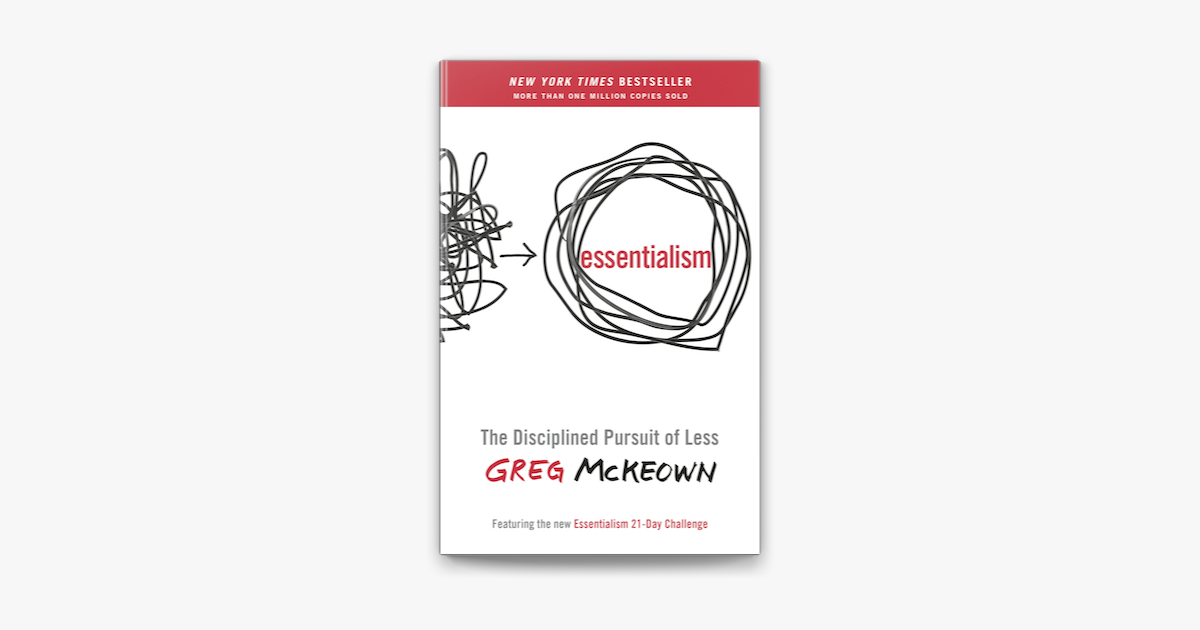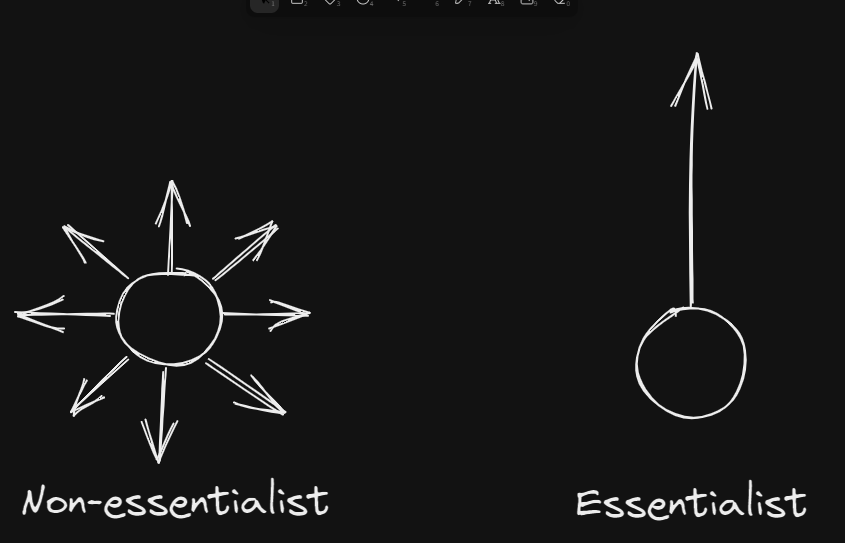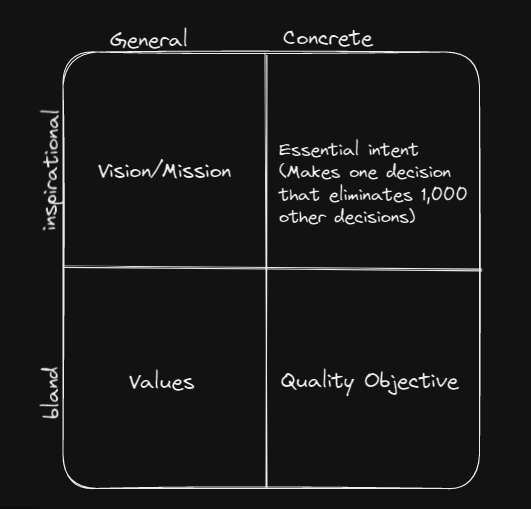Essentialism: The disciplined pursuit of less
 Tutsirayi Aubrey Tsorayi
Tutsirayi Aubrey Tsorayi
by Greg Mckeown
The Essentialist
From things you say yes, they a lot of things you say no
Weniger ober bresser <-> less but better
An essentialist asks himself, "Am I investing in the right activities?"
There are far more activities and opportunities in the world than we have time and resources to invest.
The way of the essentialist involves learning to tell the difference - learning to filter through all those options and selecting only those that are truly essential.
Essentialism is not about how to get more things done; it's about how to get the right things done.

The way of the Essentialist means living by design not by default
| Nonessentialist | Essentialist | |
| THINKS | "I Have to" | "I choose to" |
| DOES | Reacts to what's most pressing | Pauses to discern what really matters |
| GETS | Takes too much and work suffers | Chooses carefully, in order to do great work |
The way of the essentialist is the path to being in control of our own choices "If you don't prioritize your life, someone else will"
The paradox of success:
Phase 1: When we really have clarity of purpose, it enables us to succeed in our endeavour.
Phase 2: When we have success, we gain a reputation as a "got to" person. We are presented with more options and opportunities.
Phase 3: When we have increased options and opportunities, which is actually code for demand upon our time and energies, it leads to diffused efforts and we spread ourselves thinner and thinner
Phase 4: We become distracted from what would otherwise be our highest levels of contribution.
Curiously, overstating the point in order to make it the pursuit of success can be a catalyst for failure.
Decision fatigue: the more choices we are forced to make, the more the quality of decisions deteriorates.
Essence: What is the core mindset of an Essentialist
CHOOSE: The invincible power of choice
We often think of choices as things, but a choice is not a thing. Our options are maybe things but a choice is an action.
We have overemphasized the external aspect of choices (our options) and underemphasized our internal ability to choose (our actions) "The ability to choose cannot be taken away or even given away - it can only be forgotten"
To become an essentialist requires a heightened awareness of our ability to choose
William James once wrote, "My first act of free will shall be to believe in free will"
When we forget our ability to choose, we learn to be helpless
The essentialist doesn't just recognize the power of choice he celebrates it.
DISCERN: The unimportance of practically everything
Working hard is important but more effort does not necessarily yield more results. "Less but better" does
Pareto Principle: 20 percent of our efforts produce 80 percent of our results
Power law: certain efforts actually produce exponentially more results than others
Essentialists take the time to explore all these options, these extra investments. It's justified because some things are so much more important than the effort invested in finding those things is tenfold
TRADE-OFFS: Which problem do I want?
Straddling means keeping your existing strategy intact while simultaneously also trying to adopt the strategy of a competitor.
A strategic position is not sustainable unless there are trade-offs with other positions
The logic, which ignores the reality of trade-off is "I can do both"
We can either make the hard choices for ourselves or allow others - whether our colleagues, our bosses, or our customers - to decide for us.
We can try to avoid the reality of trade-offs but we can't escape them.
A nonessentialist approaches every trade-off by asking "How can I do both?"
Essentialists as the tougher but ultimately more liberating question, "Which problem do I want?"
Essentialists see trade-offs as an intentional part of life, not as an intently negative part of life. Instead of asking, "What do I have to give up?" They ask, "What do I want to go big on?"
Explore: How can we discern the travel many from the vital few
"Without great solitude, no serious work is possible" Pablo Picasso
it's critical to set aside time to take a breath, look around, and think. You need that level of clarity in order to innovate and grow
Before you can evaluate what is and isn't essential, you first need to explore your options
| Nonessentialist | Essentialist |
| Is too busy doing to think about life | Creates space to escape and explore life |
In order to have focus we need to escape to focus
An essentialist focuses the way our eyes focus; not by fixating on something but by constantly adjusting and adapting to the field of vision
The faster and busier things get, the more we need to build thinking time into our schedule. And the noisier things get, the more we need to build quiet reflection spaces in which we can truly focus.
LOOK: See what really matters
Being a journalist in your own life will force you to stop hyper-focusing on all the minor details and see the bigger picture.
Discerning what is essential to explore requires us to be disciplined in how we scan and filter all the competing and conflicting facts, options, and opinions constantly vying for our attention
Listen for what others do not hear
Essentialists are powerful observes and listeners
Knowing that the reality of trade-offs means they can't possibly pay attention to everything, they listen deliberately for what is not being explicitly stated. They read between the lines.
| Nonessentialist | Essentialist |
| Pays attention to the loudest voice | Pays attention to the signal in the noise |
| Is overwhelmed by all the information | Scans to find the essence of the information |
JOURNALING: Write less than you feel like writing
Capture the headline
Look for the lead in your day, your work, your life
Small, incremental changes are hard to see in the moment but over time can have a huge cumulative effect
Getting the essence of a story takes a deep understanding of the topic, its context, its fit into the bigger picture, and its relationship to be different fields
The goal is to under the 'spiderweb' of the information because that is what allows you to spot any 'abnormal' or 'unusual' details or behaviour that didn't quite fit into the natural course of the information.
Now which questions are answered?
PLAY: Embrace the wisdom of your child
Play - anything we do simply for the joy of doing rather than as a means to an end
Play leads to brain plasticity, adaptability and creativity
| Nonessentialist | Essentialist |
| Thinks play is trivial | Knows play is essential |
| Thinks play is an unproductive waste of time | Knows play sparks exploration |
Play expands our minds in ways that allow us to explore: to generate new ideas or see old ideas in a new light. It makes us more inquisitive
Play fuel exploration in at least three specific ways:
broadens the range of options available to us
- opens our minds and broadens our perspective
is an antitode to stress, and this is key because stress, in addition to being an enemy of productivity, can actually shut down the creative, inquisitive, exploratory parts of the brain
has a positive effect on the executive function of the brain
Play doesn't just help us to explore what is essential. It is essential in and of itself
SLEEP: Protect the asset
The best asset we have for making a contribution to the world is ourselves
We need to pace ourselves, nurture ourselves, give ourselves fuel to explore, thrive and perform
The way of the nonessentialist is to see sleep as yet another burden on one's already overextended, overcommitted, busy but not always productive life
Essentialists instead see sleep as necessary for operating at high levels of contribution more of the time
Essentialists choose to do one fewer thing right now in order to do more tomorrow
| Nonessentialist | Essentialist |
| one hour less sleep equals one more of productivity | one hour more sleep equals more hours of much higher productivity |
| Sleep is a luxury | Sleep is a priority |
Our highest priority is to protect our ability to prioritize
Sleep will enhance your ability to explore, make connections, and do less but better throughout your waking hours
SELECT: The power of extreme criteria
"No more Yes. It either 'Hell Yeah' or 'No' " Derek Sivers
90 percent rule: if you rate something lower than 90 percent then automatically change the rating to 0 and simply reject it.
The benefits of this ultra-selective approach to decision making all areas of our lives should be clear: when our selection criteria are too broad, we will find ourselves committing to too many options.
| Nonessentialist | Essentialist |
| Say yes to almost everything | Says yes to only the top 10 percent of opportunities |
| Uses broad, implicit criteria like 'If someone I know is doing it, I should do it | Uses narrow, explicit criteria like 'Is this like exactly am looking for?' |
If it isn't a clear yes, then it's a clear no
The systemic process you can use to apply selection criteria to opportunities:
Write down the opportunity
Write down a list of three "minimum criteria" the options would need to "pass" in order to be considered
Write down a list of three ideas of "extreme criteria" the options would need to "pass" in order to be considered
Questions to ask before diving into career options:
What am I deeply passionate about?
What taps my talent?
What meets a significant need in the world?
ELIMINATE: How can we cut out the many
Killer questions:
if I didn't already own this, how much would I spend to buy it?
If I didn't have this opportunity what would I be willing to archive it?
Instead of asking, "What, of my list of competing priorities, should I say yes to?" instead ask the essential question, "What will say no to?"
CLARIFY: ONE DECISION THAT MAKES A THOUSAND
The fact is, motivation and cooperation deteriorate when there is a lack of purpose.
When there is a serious lack of clarity about what the team stands for and works and what their goals and roles are, people experience confusion, stress and frustration
When there is a high level of clarity, on the other hand, people thrive.

In the top left quadrant, we have vision/mission statements like, "We want to change the world." : that sound inspirational but are so general they almost entirely ignored
In the bottom left quadrant, we have a set of vague, general values like "innovation" - but these are typly bland and generic to inspire any passion
Bottom right: short-term quarterly objectives we pay attention to
An essential intent, on the other hand, is both inspirational and concrete, both meaningful and measurable
DARE: THE POWER OF A GRATEFUL "NO"
The main thing is to keep the main thing the main thing
A reason it's hard to choose what is essential in the moment is as simple as innate fear of social awkwardness
We can say yes and regret it for days, weeks, months or even years
The point is to say no to the nonessentials so we can say yes to the things that really matter
How to say a graceful 'no':
Separate the decision from the relationship
Saying "No" gracefully doesn't have to mean using the word no
Focus on the trade-offs
Remind yourself that everyone is selling something
Make your peace with the fact that saying "No" often requires trading popularity for respect
Remember that a clear "No" can be more graceful than a vague or noncommital "Yes"
The "No" repertoire
UNCOMMIT: WIN BIG BY CUTTING YOUR LOSSES
- Sunk-cost bias: the tendency to continue to invest time money or energy into something we know is a losing proposition simply because we have already incurred, as sunk a cost that cannot be recouped.
| Nonessentialist | Essentialist |
| Asks, "Why stop now when I have already invested so much this project" | Asks, "If I weren't already invested in this project, how much would I invest in it now?" |
| Hates admitting to mistakes | Comfortable with cutting loses |
| Thinks, 'If I just keep trying, I can make this work' | Thinks, 'What else could I do with this time or money if I pulled the plug now' |
Avoiding Commitment Traps:
Beware of the endowment effect
- not valuing what's ours and overvaluing what is already ours
Pretend you don't own it yet
Get over the fear of waste
Instead, admit failure to begin success
Stop trying to force a fit
Get a neutral second opinion
Apply zero-based budgeting
Stop making casual commitments
From now on, pause before you speak
Get over the fear of missing out
To fight this fear, run a reverse plot
EDIT: THE INVISIBLE ART
Clearly, editing - which involves the strict elimination of the trivial unimportant, or irrelevant - is an essentialist craft
A good editor is someone who uses deliberate subtraction to actually ad life to the ideas, setting, plot and characters
Good editing increases your ability to focus on and give energy to the things that really matter
Editing life principles:
Cut out options
Condense
Correct
Edit Less
LIMIT: THE FREEDOM OF SETTING BOUNDARIES
- If you don't set boundaries - there won't be any
| Nonessentialist | Essentialist |
| Thinks if you have limits you will be limited | Knows that if you have limits you will be limitless |
| Sets boundaries as constraints | Sets boundaries as liberations |
| Exerts effort attempting the direct 'no' | Set rules in advance that eliminate the need for direct 'no' |
When people make their problem our problem, we aren't helping them; we're enabling them
Craft social contracts so you don't waste time saddling with people with burden some requests
EXECUTE: HOW CAN WE MAKE DOING THE VITAL FEW THINGS ALMOST EFFORTLESS?
- While nonessentialist tend to force execution, essentialists invest the time they have saved by eliminating the nonessentials into designing a system to make execution almost effortless
BUFFER: THE UNFAIR ADVANTAGE
- Buffer: something that prevents two things from coming into contact and harming each other
| Nonessentialist | Essentialist |
| Assumes the best-case scenario will happen | Builds in a buffer for unexpected events |
| Forces execution at the last minute | Practices extreme and early preparations |
The way of essentialist uses the good times to create a buffer for the bad
Tips to keep your work - and sanity from swerving off the road:
use extreme preparation
- Plot a calendar of all projects, assignments and events
Add 50 percent to your time estimates
Conduct scenario planning
What risks do you face on this project?
What is the worst-case scenario?
What should be the social effects of this be?
What would the financial impact of this be?
How can you invest to reduce risks or strengthen financial or social resilience?
SUBTRACT: BRING FORTH MORE BY REMOVING OBSTACLES
"To attain knowledge add things every day. To attain wisdom subtract things every day" Lao-tzu
- By systematically identifying and removing this "constraint" you'll be able to significantly reduce the friction keeping you from executing what is essential.
| Nonessentialist | Essentialist |
| Piles on quick-fix solutions | Removes obstacles to progress |
| Does more | Brings forth more |
An essentialist produces more - brings forth more - by removing more instead of doing more
How to subtract:
Be clear about the essential intent
Identify the "slowest hiker"
Remove the obstacle
PROGRESS: THE POWER OF SMALL WINS
| Nonessentialist | Essentialist |
| Starts with a big goal and gets small results | Starts small and gets big results |
| Goes for the flashiest wins | Celebrates small acts of progress |
The biggest motivator is progress

What is the smallest amount of progress that will be useful and valuable to the essential task we are trying to get done
You can start early and small or late and big
Late and bug means doing it all last minute
Early and small means starting at the earliest possible moment with minimal possible time investment
When we start small and reward progress, we end up achieving more than when we set big, lofty and often impossible goals
FLOW: THE GENIUS OF ROUTINE
The essentialist designs a routine that makes achieving what you have identified as essential the default position
Essentialist still has to work hard but with the right routine in place each effort yields exponentially greater results
If we create a routine that enshrines the essentials, we will begin to execute them on autopilot
With repetition, the routine is mastered and the activity becomes second nature
How we discard routines that keep us locked in nonessential things:
Overhaul your triggers triggers
Create new triggers
Do the most difficult thing first
Mix up routines
Tackle your routines one by one
FOCUS: WHAT'S IMPORTANT NOW
Losing means you lost focus, you didn't concentrate on what was essential
To operate at your highest level of contribution requires that you deliberately tune in to what is important in the here in and now
| Nonessentialist | Essentialist |
| Mind is spinning out about the past or the future | Mind is focused on the present |
| Thinks about what was important yesterday or tomorrow | Tunes in what is important right now |
| Worries about the future or stress about the past | Enjoys the moment |
Being in the moment doesn't mean doing one task but focusing on the moment
Multitasking itself is not the enemy of essentialism; pretending we can multi-focus is
How to be in the now:
Figure out what is the most important right now
Get the future out of your head
Prioritize
"In work, do what you enjoy. In family life, be completely present" Lao Tzu
BE: THE ESSENTIALIST LIFE
- Essentialism is one more thing to add to your already overstuffed life
I do believe in simplicity. It is astonishing as well as sad, how many trivial affairs even the wisest thinks he must attend to in a day;... so simplify the problem life, distinguish the necessary and the real ~ David Thoreau
As this idea (Essentialism) becomes emotionally true, they take on the power to change you
"As a man thinketh in his heart, so is he"
If one's life is simple, contentment has to come. Simplicity is extremely important for happiness ~ Dalai Lama
Subscribe to my newsletter
Read articles from Tutsirayi Aubrey Tsorayi directly inside your inbox. Subscribe to the newsletter, and don't miss out.
Written by

Tutsirayi Aubrey Tsorayi
Tutsirayi Aubrey Tsorayi
Always learning and sharing.